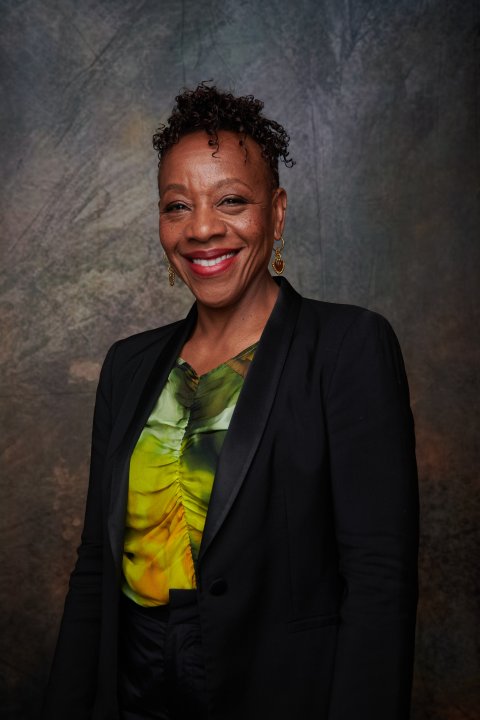
"I'm not too worried about her not being likable, but I was worried about people not having compassion for her."
Nearly 30 years after Marianne Jean-Baptiste received an Oscar nomination for her first collaboration with director Mike Leigh, Secrets & Lies, the pair are back together with Hard Truths. "It's been so nice to just spend time with him." Jean-Baptiste plays Pansy, a depressed, angry, middle-aged woman who seems to find conflict with everyone. "I'm not too worried about her not being likable, but I was worried about people not having compassion for her." Part of what makes a Leigh film so unique is the preparation that goes into crafting a character. "He is the only one that works in the way that he works, with the preparation, with the rehearsal." Once again, Jean-Baptiste is receiving awards buzz for her multilayered performance. But for her, it's less about her performance and more about people discovering the film. "It's becoming more and more difficult to get people to go to the cinema to see films, especially one like this that hasn't got that big money behind it. So for this film to be sort of the little David against Goliath, it's a real thrill."
SUBSCRIBE TO THE PARTING SHOT WITH H. ALAN SCOTT
ON APPLE PODCASTS OR SPOTIFY
Editor's Note: This conversation has been edited and condensed for publication.
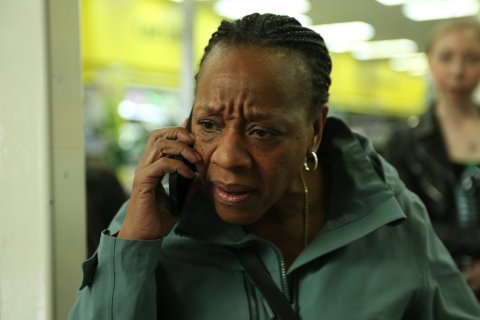
What does it mean to you to be re-teaming again with Mike Leigh?
It's just been beautiful. It's been so nice to just spend time with him. I live in the United States, he lives in London, but just to spend an extended amount of time with him. Obviously, he got on my nerves sometimes, and I got on his. [laughs] But no, we didn't actually, we didn't get on each other's nerves.
How did you respond to this character?
With a lot of compassion and patience, to be quite honest with you. When we started to create her, quite early on, I was getting the impression, "Okay, this one's not going to be an easy one." Do you know what I mean? Just because of the amount of disappointments and things going wrong for her in her life. But I thought it was very important that, as all of Mike Leigh's characters, they're multi-layered. There's so much work that goes into building them that you know that it's not going to be a one-dimensional character. She's going to have these flaws, the pain will be evident, the vulnerability, the fear, because the important thing is to not judge the character when you're playing them and when you're approaching getting into them.
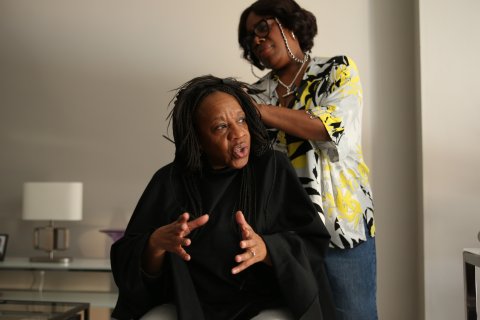
She's a complicated character, one that is difficult to like sometimes. Do you ever worry about a character not being likable?
I don't know so much with likability. I think it was just, I want her to get the help that she needs. I really do. But obviously I know she's not gonna take anything that's suggested to her like that in a positive way. I think she'd be offended. I'm not too worried about her not being likable, but I was worried about people not having compassion for her the way that I do.
What is it about Mike's vision and process that makes these characters so relatable?
Well, I think it's about that work. It's that three-and-a-half-month rehearsal process whereby you are creating a character from scratch, from their first memory to when they're going to play the character, every detail of that person's life has been worked out and discussed, spoken into existence. All the histories, the parallel histories, the sisters, creating their family tree, creating all the parties and events, the memories. By the time an actor gets to the point of improvisation in a Mike Leigh process, they've got a whole person that they're working with memories.
As an actor, what is that process like? Do you wish you had it on other projects?
I totally wish we had it, or something resembling it. Because he is the only one that works in the way that he works, with the preparation, with the rehearsal, you save a lot of time when you're shooting. Because everybody knows what they're doing. Nobody's trying to find their character or motivation for doing something when they're on set. It's already been worked out. I absolutely love working in that way, because some days, you go home with a headache because you've been thinking so much and having to come up with all this fantastic imaginative stuff for your character. It's really rewarding.
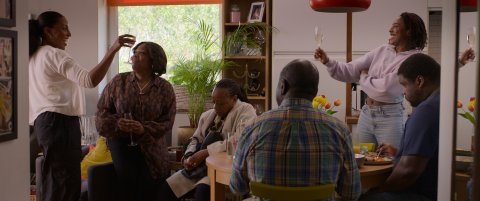
Because you're so involved with a character, how do you leave them at the end of the day?
Well, basically, Mike's very strict about coming in and coming out of character. So it's like you step out of character quite quickly. But obviously there's some residual thought patterns that exist, some of Pansy's intrusive thoughts that stayed for a while. But I'd just be like, "Oh, shut up, Pansy." She stuck around for a bit [afterward], but I very gently said, "It's okay, you can go now, dear."
Did you know that you were onto something really interesting with this character?
No, I don't think so. At first, when we were doing it, I found it to be...she's really tricky, my God. Obviously all the experiences that she's had, somebody else would react to them in quite a different way. But the genius of Mike Leigh is that he's able to factor in stuff in one's life experience, to completely and utterly stir the character into a particular direction. At one point, I said to him, "It's too much. This isn't sustainable." And he just said to me, "Angrier, more aggressive."
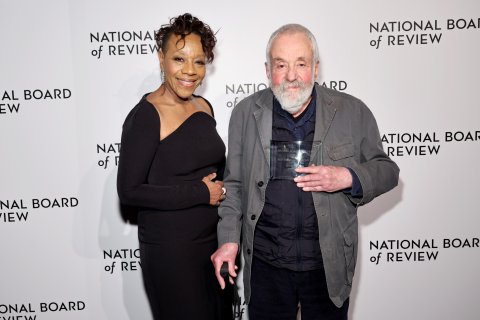
You've mentioned the mental toll a role like this can have, but is there a physical toll?
Yeah. She was so tight, physically. Ready to strike. It was tiring being coiled up like that all day.
You shot to fame after your first film with Mike, Secrets & Lies. What impact did Secret & Lies have on your career?
I've taken his process into other jobs, a mini version for myself. But actually doing that film, it's interesting, because you come back full circle. Doing that film, and it being so positively received and widely received, and people coming up and saying, "I'm adopted and the film made me go and look for my parents." It was my first experience of a film having an impact on people. I'm moving them to do something, to make a change, and I just thought, "God, that's amazing to have been part of that." And to do this now I'm just getting, "That's my auntie, that's my mother-in-law, grandmother." And you're just stunned by the effects that it can have. It's extraordinary. I'm very fortunate to have had those experiences.
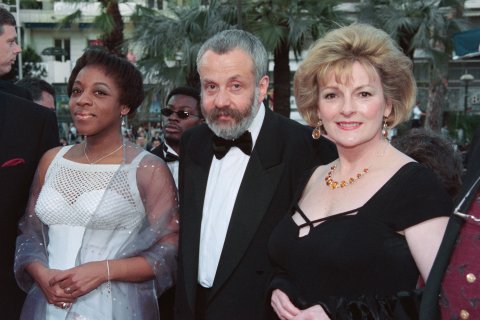
What do you make of films like Hard Truths, going up against big movies like Wicked and Gladiator II, and having an impact?
He [Leigh] loves exploring the human condition and characters that aren't usually inspiration for people to make stories about. David Thewills, his character in Naked, for example, he [Leigh] wants to look at him. Pansy [too], he's fascinated by those sorts of characters. He gives them a platform, gives them a place to be watched and to be discussed and analyzed, explored, which I think is fantastic.
Yes, even in my chat with him, he said something about the real me, and I was like, "Oh no, what does he see that I don't see?"
I would sit down and he'd point to somebody across the room and go, "Look at that one." And then we would be off, what they do for a living, where they are, they married? Have they got kids?
How do you feel about all the awards buzz that this film is getting?
I think it's great, because it's becoming more and more difficult to get people to go to the cinema to see films, and especially one like this that hasn't got that big money behind it that can get it in front of the eyeballs. So for this film to be sort of the little David against Goliath, it's a real thrill to see the work [get recognized]. Because as an artist, you're like, "I want the work to speak for itself." And I think she's speaking, man, which I think is great.
She really stays with you.
She does, doesn't she? She's like a stain.
To read how Newsweek uses AI as a newsroom tool, Click here.








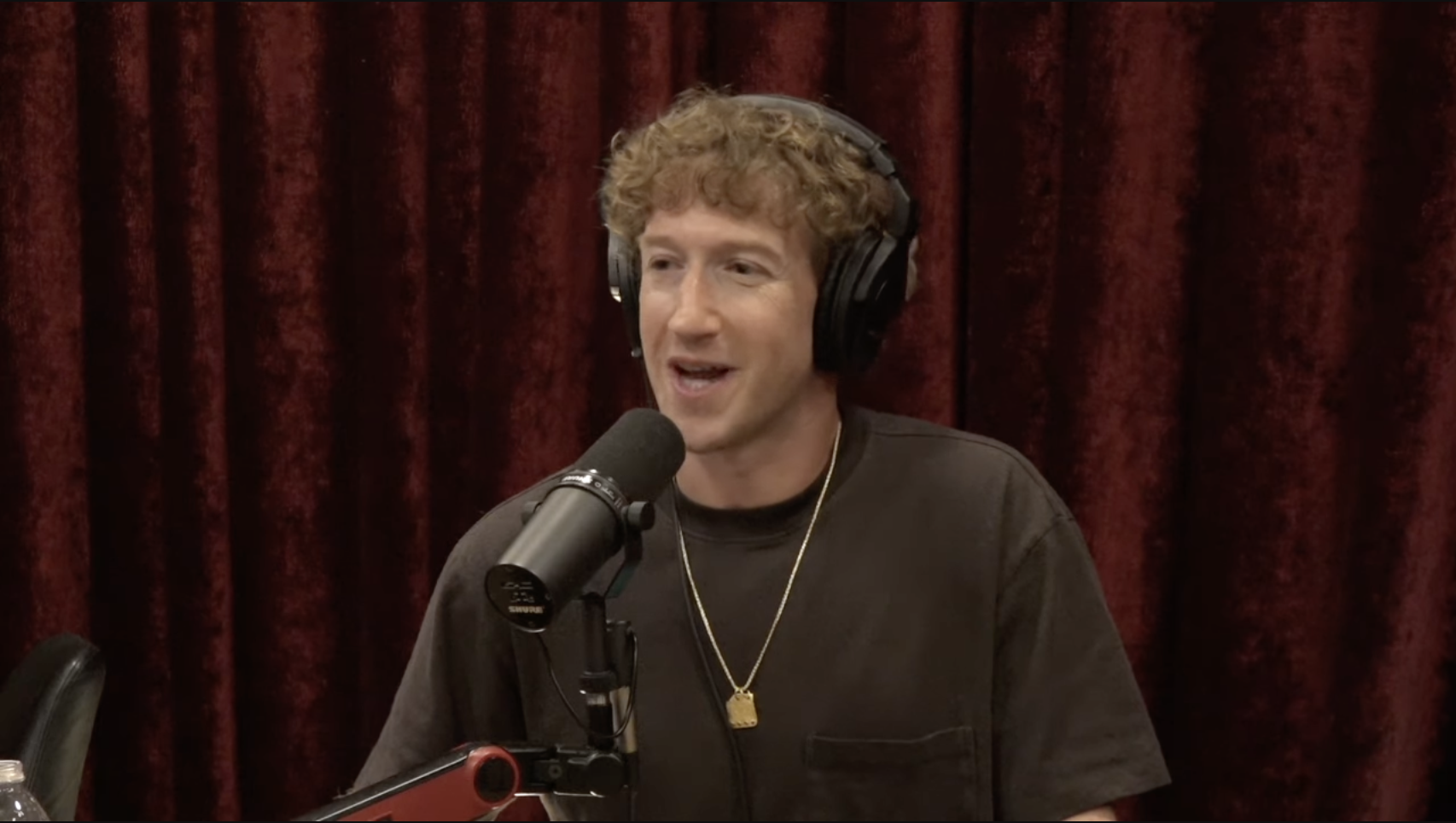

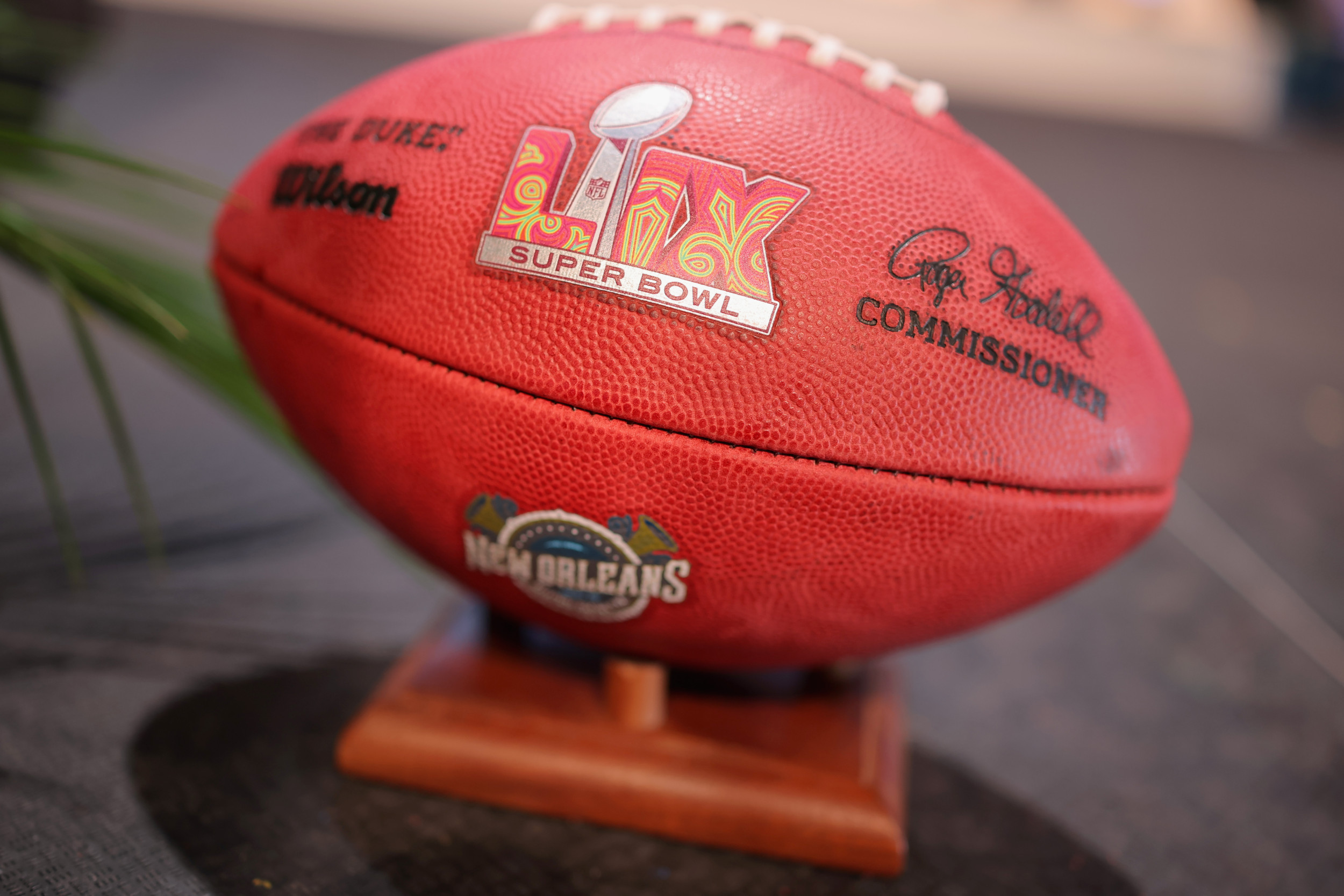









 English (US) ·
English (US) ·